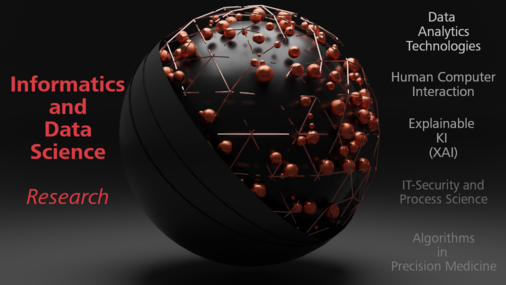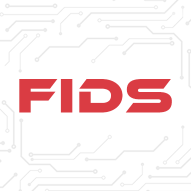Data Analytics Technologies
 | Scientific knowledge in all disciplines depends to a large extent on the ability to analyze huge amounts of data in the shortest possible time. In the coming years, this topic will increasingly permeate not only science, but also business and society. In the Data Analytics Technologies focus area, we achieve the required efficiency by developing optimized computer architectures, efficient code for parallel data processing and, above all, innovative algorithms. Application examples range from cryo-electron microscopy in biochemistry to speech recognition in information sciences and tumor progression models in medicine. |
Explainable AI (XAI)
| Those who make momentous decisions must also be able to explain them. While learning theory provides good reasons for how learning systems work in principle, the theoretical basis for understanding individual decisions made by the systems is often lacking: Why did the driving assistant brake in this exact situation? Why does the system suggest immunotherapy rather than chemotherapy for this cancer patient? Why does a learning system report a serious IT security incident based on seemingly innocuous event data? With our focus in XAI, we are laying these theoretical foundations. In this way, we are building bridges from computer science and mathematics to law, politics, economics, medicine, and the natural sciences, where XAI contributes to the explanation and theory building of complex phenomena, in addition to predicting them. |  |
Algorithms in Precise Medicine
 | Personalized Precision Medicine takes into account individual differences in genetics, physiology, environment and lifestyle of patients with the aim of finding the most targeted strategy to treat or prevent a disease while minimizing unwanted side effects. In the Precision Medicine focus area, we develop artificial intelligence methods that distill such therapy recommendations from a patient's molecular characteristics and explain them to the treating physician and also to the patient (XAI). In this way, we are building a bridge from computer science, data science and HPC to medicine, preclinical medicine and biochemistry. |
Human Computer Interaction
| Intelligent systems and interaction technologies increase the variety of exchanges between humans and machines. Examples include the use of intelligent assistance systems for the elderly, the use of brain-computer interfaces in basic medical research, and the visualization of complex processes and data in the digital factory. In the focus area of human-machine interaction, we research and develop data-driven and intelligent methods for the design of socio-technical systems in order to shape the digital living environment in a responsible and human-centered way. In doing so, we also build the necessary bridges to the humanities and humanities sciences. |  |
IT Security and Process Science
| The analysis, design, and validation of process-oriented information systems with high security requirements will continue to gain importance in highly networked value chains. In the area of IT Security and Process Science, we research and develop both the necessary fundamentals (e.g., security mechanisms, process theories) and relevant applications. Examples are Security/Privacy by Design based on cryptographic methods as well as analysis and quality measurement of complex event data in process-oriented information systems using machine learning methods. This results in a broad interface into economics. |  |










